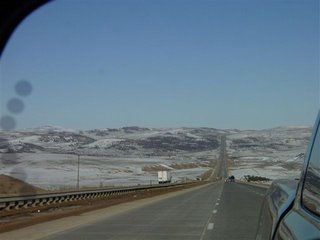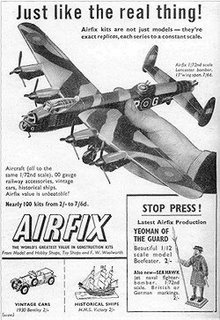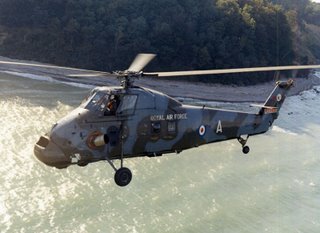 It comes to something when an article in the New York Times is actually interesting, and even more so when the subject matter is boredom.
It comes to something when an article in the New York Times is actually interesting, and even more so when the subject matter is boredom.Written by Timothy Egan, the piece recounts how in Cody, Wyoming, barely five people per square mile live on the high, wind-raked ground. The entire state is a small town with long streets, as they say. The open space means room to roam and a sense of frontier freedom.
But, it also means that on any given night, an unusually high percentage of young people here are drinking alcohol until they vomit, pass out or do something that lands them in jail or nearly gets them killed.
A survey, conducted over three years by the federal Substance Abuse and Mental Health Services Administration, said south-central Wyoming led the nation with the highest rate of alcohol abuse by people age 12 and older. In Albany and Carbon counties, more than 30 percent of people under age 20 binge drink — 50 percent above the national average.
In examining behaviour in 340 regions of the country, the survey found that 7 of the top 10 areas for under-age binge drinking — defined as five or more drinks at a time — were in Wyoming, Montana and North and South Dakota.
At the other end of the scale, some of the lowest areas for under-age binge drinking were in the nation’s most densely packed cities — parts of Washington, D.C., Detroit and Los Angeles. An earlier federal study found that rural youths ages 12 and 13 were twice as likely as urban youths to abuse alcohol.
And while it may be a mystery to some why the least-populated part of the country leads the nation in the percentage of young people drinking to excess, it is no surprise to many people in Wyoming or Montana. Teenagers, police officers and counsellors offer the same reason: the boredom of the big empty.
The "big empty", as you might expect, is not exactly a problem we have to confront in overcrowded Britain, with a density that would have most Americans running for the barricades. But binge drinking we certainly do have, in our towns and cities, and an epidemic of alcohol abuse amongst our young. Furthermore, the same factor is quoted – nothing to do. They are bored.
This very issue came up earlier this year during a general election hustings meeting in North Shropshire, when an articulate young lady in the audience complained strongly and bitterly about the lack of entertainment opportunities for the youngsters in her town, and the failure of politicians, national and local, to address the issue.
It was actually the UKIP candidate who suggested that there was plenty do. If the young lady wanted to volunteer for leafleting duties, and any number of the multitudinous tasks involved in political campaigning, then she would be very welcome. She would never be able to complain of being bored.
The derision with which his suggestion was met by some sections of the audience was not entirely merited. You do not have to be a political nerd to appreciate that party activism can be highly rewarding and entertaining. You have a chance to meet like-minded people, to discuss and air views, and to down the odd pint or two in convivial company. And, for many decades, the Young Conservative Party was widely regarded as the dating agency for the middle classes.
But, bored as they are – or protest to be – the very last thing most young people would ever consider, on either side of the Atlantic, is engaging in the political process.
To digress slightly (alright, to digress hugely), I have never understood what it is to be bored. As I youth, I lived the greater part of my life in a top-floor three-bedroomed flat, sharing a room with my brother and with two sisters to contend with. We had neither television nor, in those days, computers. A "radiogramme" came only later - our first one, hillariously, bursting into flames when it was switched on. But bored I never was. In a slightly impoverished middle class family, we were perpetually short of cash and I had to earn my own pocket money. With cleaning neighbours' cars, delivering paraffin and a variety of odd jobs, my Saturdays were frenetic with activity. On a good week, I could earn as much as two whole pounds.
 In the week that the Airfix model company has gone into administration, I have to record that the main object of my expenditure was Airfix kits and it is a measure of my relative wealth that, in those days, a basic kit cost a mere two shillings – 10p in new money.
In the week that the Airfix model company has gone into administration, I have to record that the main object of my expenditure was Airfix kits and it is a measure of my relative wealth that, in those days, a basic kit cost a mere two shillings – 10p in new money.But it was not just the making – with two long-standing friends, we developed an extraordinarily sophisticated war game, each of us with our own model armies – strictly to scale, courtesy of Airfix – and the latter parts of Saturdays and Sundays would often be spent locked in mortal combat.
With three equally matched armies, funded by equal levels of wealth, the object was for any one to beat the other two, which was usually done by setting the other two against each other and then mopping up the survivor. It was either that or two would gang up against the one, but you would try to make sure your temporary ally took most of the losses so that you could move in afterwards and finish him off. For Machiavellian deviousness, it had more in common with three-dimensional chess.
For the long holidays, around the family vacation, there was always the Combined Cadet Force – with which we were blessed at our school. By the time I was sixteen, I had earned my gliding license, had attended a signals course in Catterick, North Yorkshire, an Engineer course in Chatham, when we had the youthful delight of blowing things up, and a Royal Logistics course where I had the terrifying experience of driving a 3-tonner round Regent Street Barracks - the first time I ever took to the wheel of a vehicle.
 There were also annual camps, one of which was in Gutersloh, Germany, where we had the exhilarating experience of flying high speed at low level over the tank ranges in an 18 Squadron Wessex helicopter, with the added frisson of the pilot practising engine failure procedures and flying on one engine.
There were also annual camps, one of which was in Gutersloh, Germany, where we had the exhilarating experience of flying high speed at low level over the tank ranges in an 18 Squadron Wessex helicopter, with the added frisson of the pilot practising engine failure procedures and flying on one engine.By the time I was eighteen, I had completed a flying scholarship, qualifying for a private pilot's license long before I could officially drive a car – although I had then been driving Land Rovers and one-tonners on airfields for some years. Bored? I did not know the meaning of the word.
So much for the digression – it seems to me that boredom is a state of mind. Even when not active, there were always books. I stripped the local library clean of books, and then ordered more when I had read all the titles available. There was never enough time in the day. As for drinking. Forget it – there were too many Airfix kits to buy and make.
But now it is, when there are possibly more opportunities then ever in the history of mankind for entertainment and self-enrichment – not least radio, television, cheap telephones, computers and the internet, to say nothing of books that have never been cheaper and more easily accessible – we are bored.
Not only that, at all levels, we are too bored to engage in the political process, too bored to go out and vote, too bored to get upset about the latest inadequacies and dishonesties of our politicians. Instead – adults as well as our gilded, pampered youth – we go out and get "hammered".
What is wrong with our society? Is this the way our civilisation ends – in a pool of vomit, spilled out onto the pavement from over-indulgence?
COMMENT THREAD
No comments:
Post a Comment
Note: only a member of this blog may post a comment.